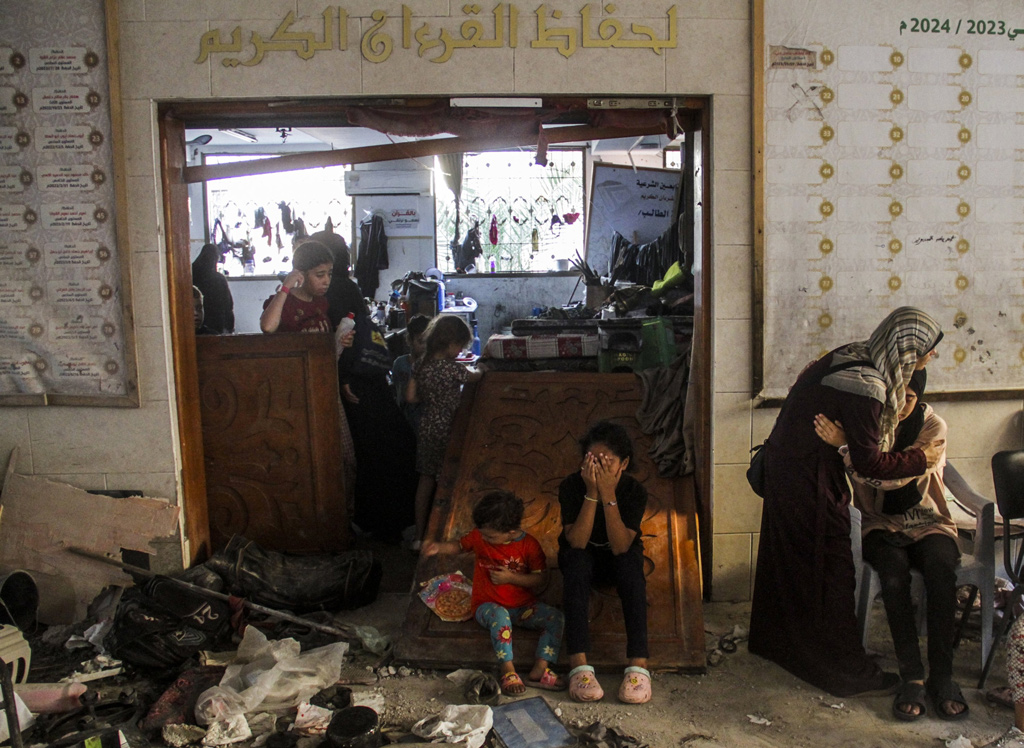The innocent Palestinian people have been suffering from Israeli oppression for the last eight decades. Israel has been expanding its territories at the expense of the Palestinians and occupying Palestinian lands, thereby depriving them of their natural rights. Muslim peoples and states have been reacting to the Israeli policies in Palestine, which were considered until very recently not as a problem but as a cause. The only pan-Islamic international organization, the Organization of Islamic Cooperation (OIC), was established in response to developments in Palestine. According to the Charter of the OIC, once the city is liberated from Israeli occupation, Al-Quds (Jerusalem) will become the permanent headquarters of the organization.
According to the OIC Charter, one of the main objectives of the organization is supporting and empowering “the Palestinian people to exercise their right to self-determination and establish their sovereign state with Al-Quds Al-Sharif as its capital.” However, although the Palestinian people have been subjected to genocide for the last 10 months, there has been no concrete reaction from the Muslim world.
The OIC made significant decisions regarding the Israeli atrocities at the joint Arab and Islamic summit, held in Riyadh on Nov. 11. The summit called for the lifting of the Gaza siege and delivery of humanitarian aid to Palestinians. However, none of these decisions were implemented despite establishing a contact group consisting of foreign ministers of 10 Muslim states. The OIC has not taken further steps to alter the conditions on the ground.
Although the innocent Palestinians have been attacked daily and the Israeli offensive killed more than 40,000 people, mostly children and women, the majority of the Muslim states remain hesitant to cut their political and economic ties with Israel. Furthermore, they have not suspended normalizing their diplomatic relations with the country. About 2 million Palestinians are facing severe shortages of food, clean water and medicine. Much of Gaza has been destroyed by the Israeli bombardments. Some Muslim states have not even called for an end to the Israeli aggression and the ongoing genocide against the Palestinians.
In a recent extraordinary meeting of the 57-member OIC held on Aug. 7 in Saudi Arabia, the OIC held Israel responsible for the assassination of Ismail Haniyeh. Member states condemned the oppression, torture and mass killing of Palestinians by the Zionist entity. The OIC called on the U.N. Security Council to take effective measures to ensure international peace and security. The pan-Islamic organization emphasized the need to protect the Islamic identity of Jerusalem. Ironically, the OIC also called on its member states to take diplomatic, legal and political measures against Israel.
In addition to the ongoing brutal Israeli offensive in Palestine, Israel has persistently violated the sovereignty and territorial integrity of several other Muslim countries. Despite this, the OIC, which positions itself as the collective voice of the Muslim world, along with other Muslim states or institutions, has not responded to these violations. Many Muslim states prefer to maintain their cooperation with Western countries and pursue a balancing policy in this asymmetric war.
Upon closer examination, there are several reasons why the Muslim world is politically absent and does not play an effective role in Palestine. First of all, Muslim states are divided by various political, social, economic, geographical and historical factors. Most Muslim states suffered greatly from colonial occupation and were ruled for centuries by Western colonial powers. This experience has led to significant political and economic dependencies for them. In other words, they are deeply preoccupied with their own problems and lack the capacity to assist other Muslim countries effectively.
Moreover, Muslim countries are situated in diverse geographical regions, each with its own historical legacies. As a result, countries with different political experiences have varied reactions to political issues in the Muslim world. Additionally, due to their geographical locations, their engagement with various global powers leads to differing political preferences and expectations.
Another reason is that many Muslim countries are reluctant to be labeled as "Islamists" by Western powers due to their independent policies regarding Islamic issues. Western governments, academics and media often label any Muslim country seeking to enhance its strategic autonomy or support fellow Muslim countries as "political Islamists" or "rogue states." The misperception about Islam and Muslims discourages these governments from taking proactive steps on the Palestinian question.
Furthermore, due to their political and economic vulnerabilities, Muslim governments are wary of potential repercussions from Western powers and thus tend to remain indifferent to the ongoing crisis in Palestine. Non-Western global powers such as China and Russia do not offer viable alternatives to help Muslim states increase their resilience against Western military, political or economic interventions.
Because of the factors mentioned above, Muslim states are unable to effectively act on OIC platforms. They tend to rely on procedural diplomatic condemnations rather than implementing substantial measures. Consequently, the Muslim world remains politically passive, and the 57-member OIC struggles to play an effective role in addressing Muslim-related political issues. The current policy orientation of Muslim states is, therefore, not sustainable.
Sooner or later, Muslim nations will demand that their governments take more concrete actions against Israeli atrocities. Politically aware Muslims will question the massacre of over a hundred innocent individuals while they are praying in a school complex. Additionally, Israel's attempts to expand the conflict to other countries, such as Lebanon, Iran and Syria, will create further challenges for Muslim governments that have been indifferent to the situation in Palestine. Consequently, many Muslim states will eventually be compelled by domestic and external pressures to take a more effective role in limiting violence and addressing the conflict.







